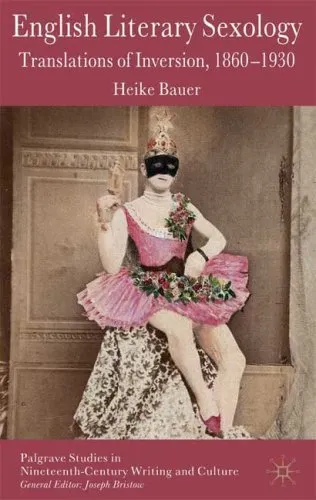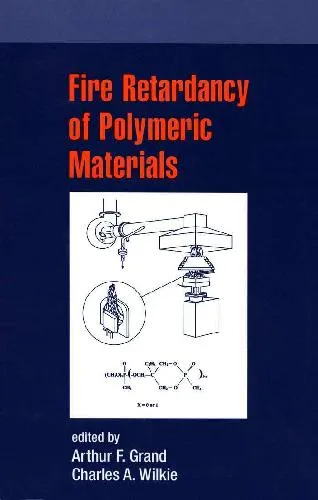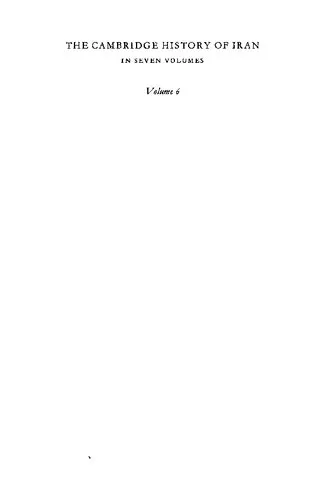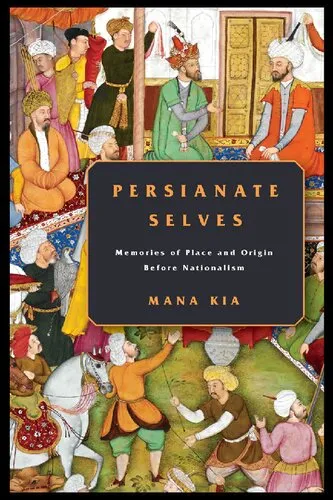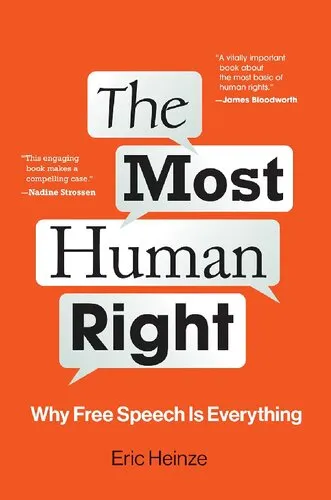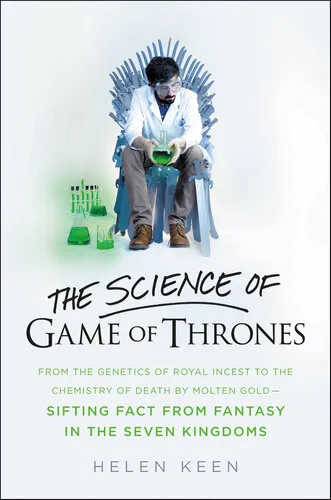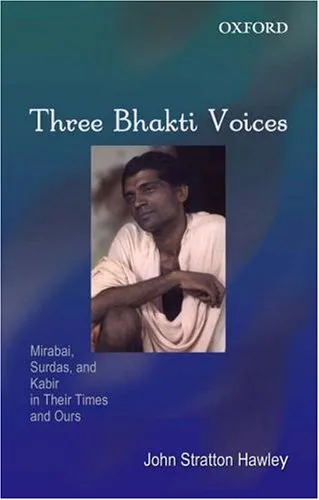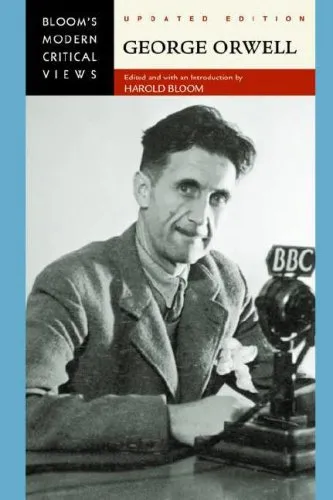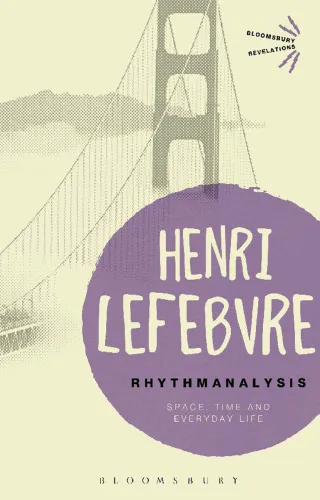English Literary Sexology: Translations of Inversion, 1860-1930 (Palgrave Studies in Nineteenth-Century Writing and Culture)
4.5
بر اساس نظر کاربران

شما میتونید سوالاتتون در باره کتاب رو از هوش مصنوعیش بعد از ورود بپرسید
هر دانلود یا پرسش از هوش مصنوعی 2 امتیاز لازم دارد، برای بدست آوردن امتیاز رایگان، به صفحه ی راهنمای امتیازات سر بزنید و یک سری کار ارزشمند انجام بدینکتاب های مرتبط:
معرفی کتاب "English Literary Sexology: Translations of Inversion, 1860-1930"
کتاب "English Literary Sexology: Translations of Inversion, 1860-1930" نوشته هایکه باوئر، یکی از آثار مهم در حوزه ادبیات و جنسیتشناسی قرن نوزدهم و اوایل قرن بیستم است. این اثر به طور خاص به چگونگی تأثیرگذاری مفاهیم علمی نوظهور در مورد جنسیت، بهویژه مفهوم Inversion، بر ادبیات و گفتمان فرهنگی دوران ویکتوریا و اوایل دوران مدرن میپردازد. با استفاده از مطالعات متنی دقیق و تحلیلهای بینارشتهای، این کتاب پیوندهای میان تحولات زیستشناختی، پزشکی و فرهنگ ادبی را بررسی میکند.
خلاصهای از کتاب
این کتاب در سه بخش اصلی به بررسی مفهوم Inversion میپردازد؛ اصطلاحی که در زیستشناسی و روانشناسی قرن نوزدهم برای توصیف الگوهای غیرمعمول جنسیت و تمایلات جنسی به کار میرفت. هایکه باوئر در این کتاب نشان میدهد که چگونه این مفهوم علمی از طریق ترجمهها به فرهنگ ادبی انگلیسی نفوذ کرد و نویسندگان را به بازاندیشی در مفاهیمی از جمله هویت، اخلاق و تمایلات جنسی واداشت. کتاب علاوه بر تحلیل آثار ادبی، به بررسی واکنشهای جامعه و فرهنگ به این تغییرات پارادایمی میپردازد.
یکی از نکات برجسته این اثر، بررسی تأثیر آثار ادبی در بازنمایی و شکلدهی به گفتارهای مدرن در مورد جنسیت است. باوئر نشان میدهد که چگونه متنهای ادبی، به عنوان محل تلاقی علوم جدید و هنجارهای فرهنگی، ابزار قدرتمندی برای بررسی تحول این مفاهیم به شمار میروند. همچنین، این کتاب بر ترجمه به عنوان فرآیندی کلیدی در انتقال و تغییر معنای Inversion تأکید میکند.
نکات کلیدی کتاب
- بررسی مفهوم Inversion و نقش آن در بازاندیشی مفاهیم هویت جنسی و جنسیتی در ادبیات قرن نوزدهم.
- تحلیل چگونگی نفوذ ترجمههای علمی به گفتمان ادبی و بازتاب آن در آثار مختلف.
- روشهای تأثیرگذاری علم بر اشکال مختلف بازنمایی در هنر و ادبیات.
- بررسی نقش ادبیات به عنوان فضایی برای چالش و بازتعریف مفاهیم جنسیت و تمایلات جنسی.
نقلقولهای برجسته از کتاب
"Inversion was not merely a medical or psychological term; it became a cultural code, a marker of transgression and possibility that operated across the boundaries of science and literature."
"Translation, in the context of literary sexology, is both linguistic and conceptual—it is a process of transformation of ideas as much as words."
"The intersection between nineteenth-century literary imaginaries and the burgeoning science of sexology is not just about influence but about co-creation."
چرا باید این کتاب را خواند؟
این کتاب برای دانشجویان و دانشپژوهان حوزههای ادبیات، جنسیتشناسی، تاریخ علم و حتی ترجمهشناسی ارزشمند است. چرا که نه تنها به بررسی یک دوره تاریخی خاص میپردازد، بلکه نشان میدهد که چگونه مفاهیم علمی و فرهنگی به هم پیوند میخورند و به تغییر گفتمانهای اجتماعی و ادبی کمک میکنند. هایکه باوئر با نثری شفاف و پژوهشی عمیق، ابعاد کمتر شناختهشدهای از ادبیات و علم را برای خواننده آشکار میکند. این اثر پلی میان رشتهها و دیدگاههای مختلف ایجاد میکند و برای کسانی که در جستجوی فهم عمیقترِ تاریخ جنسیت در ادبیات هستند، منبعی بینظیر است.
Welcome to the introduction of English Literary Sexology: Translations of Inversion, 1860-1930, a groundbreaking exploration of the intersections between literature, culture, and the emergent study of sexual inversion in the late nineteenth and early twentieth centuries. In this book, Heike Bauer delves deeply into the cultural history of sexual science, focusing particularly on how ideas about sexual inversion were translated and understood through English literary texts.
Drawing from a rich archive of literary, scientific, and public discourse, English Literary Sexology sheds light on how notions of sexuality were constructed amid significant societal shifts, including the rise of sexology as a formal discipline. The book not only charts the transnational movement of ideas about inversion—a concept tied closely to homosexuality—but also examines how literature shaped and was shaped by emerging concepts of identity, desire, and sexual health. The narrative is insightful, critical, and highly relevant to scholars of gender studies, queer theory, literature, and cultural history.
Detailed Summary of the Book
At its core, English Literary Sexology: Translations of Inversion, 1860-1930 investigates the process by which ideas about sexual inversion were conceptualized, translated, and disseminated. Bauer argues that literature was not simply reflecting scientific or societal views on sexuality but actively shaping them. By examining works by prominent literary figures such as Oscar Wilde and Radclyffe Hall alongside early sexologists like Havelock Ellis, Bauer demonstrates the intricate interplay between literary creativity and scientific discourse.
The term "inversion," introduced by early sexologists, became a key way to describe non-normative sexual behaviors and identities. The book traces how this concept moved across borders, gaining traction in English-speaking contexts and becoming a part of broader discussions around morality, deviance, and personal freedom. Bauer highlights how literary texts served as both illustrations of and contestations against the medicalized and often pathologizing views of inversion.
Furthermore, Bauer addresses the importance of translation—not merely in linguistic terms but also in cultural ones. By analyzing how scientific ideas about inversion were "translated" into poetry, fiction, and social commentary, she reveals the ways such translations simultaneously solidified and disrupted existing norms. The book thus illustrates a fascinating cultural phenomenon: the mutual influence of sexual science and English literature during a critical period in history.
Key Takeaways
- Literature played a significant role in constructing modern understandings of sexuality and identity.
- The concept of inversion was a central focus of early sexological studies and its dissemination shaped cultural attitudes toward homosexuality.
- Explorations of sexuality through literature were both creative and deeply political, offering avenues for resistance against medical and societal stigmas.
- Translation was not simply about linguistic transfer but cultural reframing, influencing how ideas on sexuality were perceived and experienced.
- The book serves as a critical resource for understanding the interconnected histories of sexology, literature, and queer identities between 1860 and 1930.
Famous Quotes from the Book
"Literature, far from being a passive reflector of scientific knowledge, actively engaged with, transformed, and contested the ideas that shaped the modern field of sexology."
"The transnational movement of the concept of sexual inversion illustrates not only the interconnectedness of European intellectual traditions but also the vital role of cultural translation in shaping public understandings of sexuality."
"By analyzing literary texts alongside medical treatises, we can uncover the nuanced ways in which inversion came to be both defined and defied."
Why This Book Matters
Heike Bauer’s English Literary Sexology is an essential read for academics and general readers interested in the history of sexuality, literary studies, and queer theory. Its innovative approach bridges the world of literary creativity and scientific inquiry, offering a nuanced perspective on the formation of modern sexual identities. The book transcends traditional disciplinary boundaries, providing insights into the cultural forces that shaped—and were shaped by—sexual science.
Moreover, this work is vital in understanding how historical narratives of sexuality influence contemporary discussions on gender, identity, and rights. Bauer’s meticulous research encourages readers to think critically about the legacy of scientific terms like "inversion" and their continued impact on LGBTQ+ representation and understanding. As societal attitudes toward sexuality evolve, books like this remind us of the importance of tracing the origins of our concepts and engaging with the texts that helped define them.
دانلود رایگان مستقیم
شما میتونید سوالاتتون در باره کتاب رو از هوش مصنوعیش بعد از ورود بپرسید
دسترسی به کتابها از طریق پلتفرمهای قانونی و کتابخانههای عمومی نه تنها از حقوق نویسندگان و ناشران حمایت میکند، بلکه به پایداری فرهنگ کتابخوانی نیز کمک میرساند. پیش از دانلود، لحظهای به بررسی این گزینهها فکر کنید.
این کتاب رو در پلتفرم های دیگه ببینید
WorldCat به شما کمک میکنه تا کتاب ها رو در کتابخانه های سراسر دنیا پیدا کنید
امتیازها، نظرات تخصصی و صحبت ها درباره کتاب را در Goodreads ببینید
کتابهای کمیاب یا دست دوم را در AbeBooks پیدا کنید و بخرید
1200
بازدید4.5
امتیاز0
نظر98%
رضایتنظرات:
4.5
بر اساس 0 نظر کاربران
Questions & Answers
Ask questions about this book or help others by answering
No questions yet. Be the first to ask!
